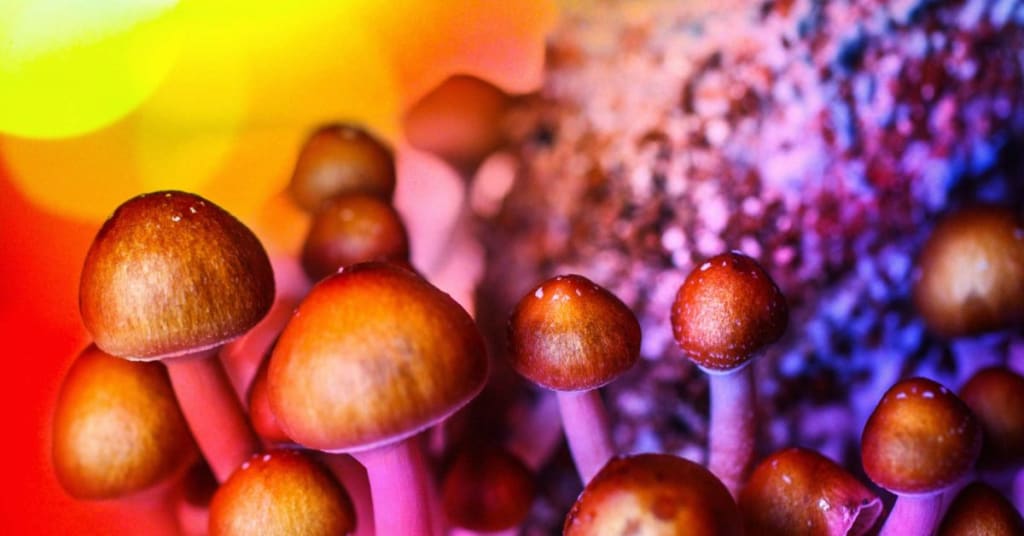
People abuse mushrooms in many ways, including cooking them or drying them out, crushing them, and eating the powder. While the effect can last for up to three days, it is not uncommon for people to abuse them over again. Mushrooms affect the central nervous system by interrupting nerve cell interactions and the function of serotonin neurotransmitters. Depending on the variety, people may continue to abuse mushrooms for days or even weeks after they consume them.
Psychedelic mushrooms
Psychedelic mushrooms, also known as peyote and magic mushrooms, can have a wide variety of effects. These drugs tend to be used by younger, well-educated individuals in search of spiritual, cognitive, and physical experiences. Several psychedelic mushroom varieties have been known to cause severe adverse reactions, including nausea and vomiting. Psychedelic mushrooms may be harmful or even fatal if ingested regularly.
Depending on the psychedelic drug, users may experience auditory and visual hallucinations. The user may experience'synesthesia,' which means that they see colors when sounds are made. When high, moods may also shift - a person might feel happy, sad, or loopy. Psychedelic mushrooms also change perceptions and alter people's emotions. While most people can experience contradictory moods, some can even be paranoid. The effects of psychedelic mushrooms are highly dependent on the environment where they are taken. If a person is in a cramped space, their trip may be horrific.
Those who are suffering from hallucinogen abuse should seek professional help. Though these substances do not produce significant physical withdrawal symptoms, abuse can lead to serious psychological and emotional effects. Many people who use hallucinogens often have underlying psychological and emotional problems. Therefore, the treatment for hallucinogenic mushrooms is multifaceted and individualized. In addition, it is important to seek professional help for psychedelic mushrooms abuse.
Symptoms
Symptoms of mushrooms abuse can be difficult to recognize because they are similar to the signs of mental illness or drug addiction. The most common symptoms of mushrooms abuse are altered mental status, diaphoresis, and increased feelings of spirituality. If you're concerned that your child is abusing mushrooms, here are some things to watch for. Listed below are the signs to look for and how to intervene. To avoid dangerous consequences, don't take the drug without consulting a doctor.
A trip induced by mushrooms can be extremely intense. It will last anywhere from five to twelve hours, and the user may have outlandish revelations. Those who abuse mushrooms may also have difficulty separating reality from illusion. In addition, they may become detached from their friends and family, and may develop a sense of depression. Ultimately, a mushroom trip can be harmful for a person's mental health and their life.
In addition to these physical effects, mushrooms abuse can cause serious psychological damage. Many users will add other drugs to their trips, which can worsen the symptoms of withdrawal. Even if you don't experience any serious withdrawal symptoms, you may still suffer from the other signs of mushrooms abuse. These symptoms may include anxiety, depression, insomnia, and flashbacks - most likely related to a previous bad trip. If you're concerned about the psychological consequences of mushroom abuse, contact a professional immediately.
Treatment
Treatment for mushrooms abuse is available at a variety of facilities. Intensive outpatient programs combine individual and group counseling services. Because they don't involve detoxification, these programs are suitable for people who use mushrooms at an early stage. Individuals can also participate in the program if they have a medical condition such as alcoholism. An outpatient program, meanwhile, is less intense and allows more freedom. An outpatient program may include support groups to encourage mindfulness and provide an environment to discuss and work through problems that have arisen.
Teens who abuse mushrooms may exhibit obvious signs of the problem. Their behavior, relationships, and school performance may be significantly affected. To make sure that your teen is safe, monitor them during mushroom trips. There are several ways to identify whether your child is using mushrooms. Here are a few signs that may signal that they are having a mushroom trip:
Symptoms of mushroom addiction can include increased heart rate, dilated pupils, and changes in personality. People who abuse mushrooms may spend too much time alone, have trouble meeting obligations, and experience intense mood swings and paranoia. Some individuals may seek treatment for these symptoms, but they are not suitable for everyone. For those who need to seek immediate help, inpatient hospitalization and residential treatment centers are available. But for those who are already struggling with mushroom addiction, there are other ways to get out of this cycle.





Comments
There are no comments for this story
Be the first to respond and start the conversation.